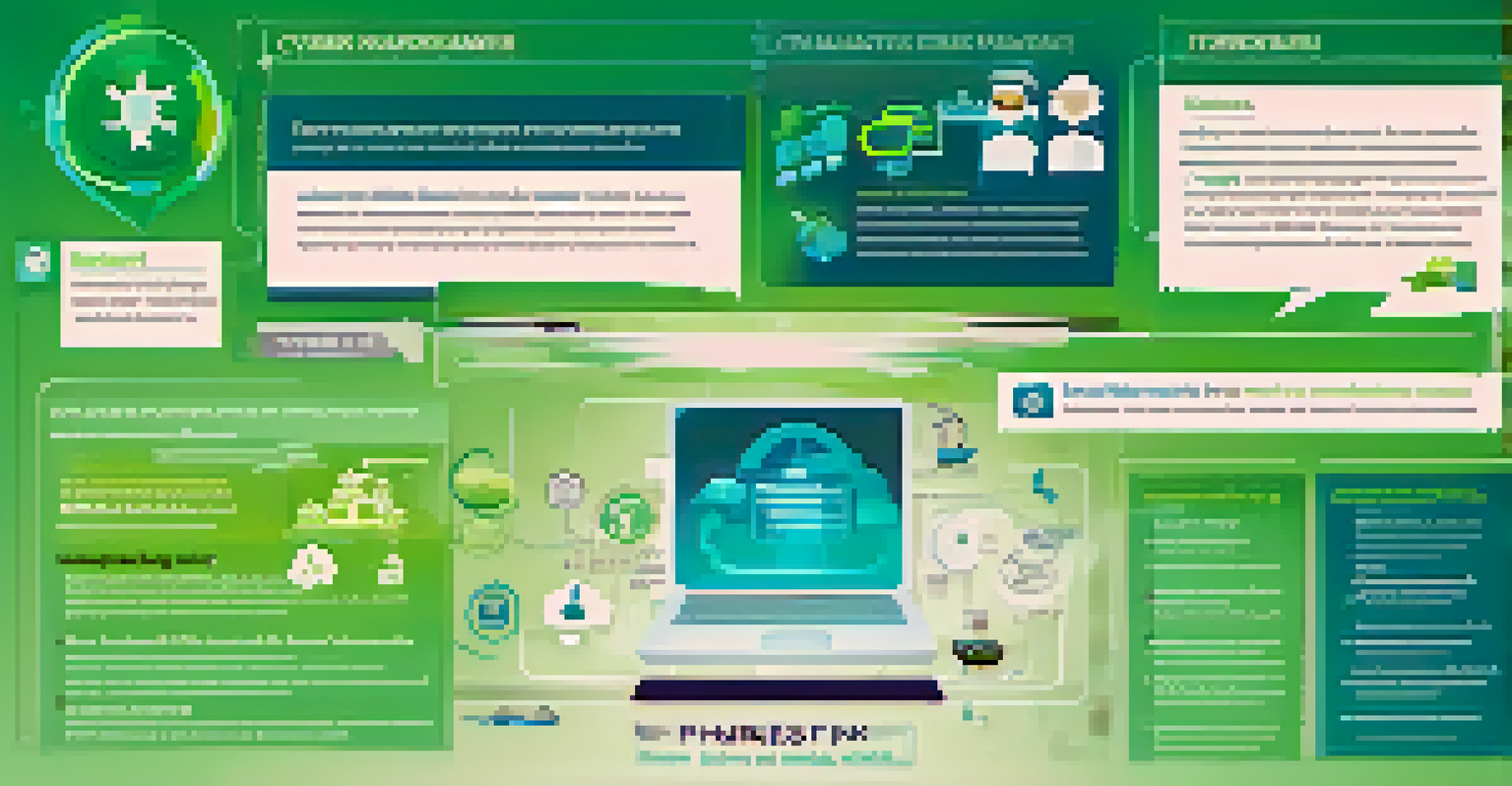Understanding Cybersecurity: Key Concepts and Best Practices

What is Cybersecurity? An Overview of Its Importance
Cybersecurity refers to the protection of computer systems and networks from digital attacks. These attacks often aim to access, alter, or destroy sensitive information. In our digital age, where almost everything is online, cybersecurity has become a critical component of personal and organizational safety.
The best way to predict the future is to invent it.
As we rely more on technology, the potential risks increase. Think of cybersecurity as a digital lock on your front door; without it, you're vulnerable to intrusions. Thus, understanding its importance can help you better protect yourself and your assets from cyber threats.
Related Resource
Ultimately, cybersecurity is about safeguarding confidentiality, integrity, and availability. By investing in cybersecurity measures, you can ensure that your personal information and business data remain secure in an ever-evolving digital landscape.
Common Cyber Threats You Should Be Aware Of
There are various types of cyber threats that individuals and organizations face daily. Some of the most common ones include malware, phishing, and ransomware. Each of these threats has its own modus operandi and can lead to serious consequences if not addressed promptly.

For instance, malware is a broad term for malicious software designed to harm systems or steal information. Phishing, on the other hand, involves tricking individuals into providing sensitive information, often through deceptive emails. Understanding these threats is the first step in building a robust cybersecurity strategy.
Cybersecurity is Essential Today
With our increasing reliance on technology, understanding cybersecurity helps protect sensitive information from digital threats.
By being aware of these threats, you can take proactive measures to protect yourself. It's much like knowing the weather forecast; if you know a storm is coming, you can prepare accordingly and avoid getting caught in the rain.
Essential Cybersecurity Terminology Explained
To navigate the world of cybersecurity effectively, it's crucial to understand some key terms. For example, 'firewall' refers to a security system that monitors and controls incoming and outgoing network traffic. Similarly, 'encryption' is the process of encoding data to prevent unauthorized access.
In the world of cybersecurity, your best defense is a good offense.
These terms might seem technical at first, but they play a vital role in protecting your information. Think of a firewall as a security guard for your data, while encryption acts like a secret code that only authorized users can decipher. Familiarizing yourself with these terms will empower you to make informed decisions about your cybersecurity measures.
Related Resource
Ultimately, understanding these concepts can help demystify cybersecurity. By grasping the terminology, you not only enhance your knowledge but also boost your confidence in dealing with potential cyber threats.
Best Practices for Creating Strong Passwords
One of the simplest yet most effective ways to enhance your cybersecurity is by creating strong passwords. A strong password typically includes a mix of uppercase and lowercase letters, numbers, and symbols. Avoid using easily guessable information like birthdays or names, as these can be discovered through social engineering.
Consider using a passphrase—a series of random words strung together—as a more secure alternative. For example, 'BlueSky!Elephant7Dance' is far more secure than '12345678'. Additionally, regularly updating your passwords can significantly reduce the risk of unauthorized access.
Common Threats to Be Aware Of
Being informed about threats like malware and phishing is crucial for building a strong cybersecurity defense.
Remember, your password is your first line of defense. By taking the time to create strong passwords, you are making it much harder for cybercriminals to gain access to your accounts and sensitive information.
The Role of Software Updates in Cybersecurity
Keeping your software up to date is a crucial aspect of maintaining cybersecurity. Software updates often include patches that fix vulnerabilities that cybercriminals could exploit. By installing these updates, you are effectively closing doors that could allow unauthorized access to your systems.
Think of software updates as maintaining your car; just as you wouldn’t drive a car with a faulty braking system, you shouldn’t neglect software that can leave you open to attacks. Regular updates can help ensure that your devices run smoothly and securely.
Related Resource
In a world where cyber threats are constantly evolving, staying current with software updates is a proactive way to protect yourself from potential risks. Make it a habit to regularly check for updates to keep your systems secure and functional.
Utilizing Antivirus Software for Enhanced Protection
Antivirus software serves as a vital tool in your cybersecurity arsenal. It helps detect and eliminate malware before it can cause harm to your system. By regularly scanning your devices, antivirus programs can identify potential threats and quarantine them, preventing any damage.
Consider antivirus software as a security system for your home; it monitors for intrusions and alerts you to any suspicious activity. While no software can guarantee 100% protection, having a reputable antivirus solution significantly reduces your risk of falling victim to cyber attacks.
Regular Backups Ensure Data Safety
Establishing a routine for data backups can safeguard your important files against loss due to cyber attacks or hardware failures.
Investing in antivirus software is a smart step toward safeguarding your digital life. By combining it with other best practices, you create a comprehensive defense against the ever-present dangers of the cyber world.
The Importance of Backing Up Your Data Regularly
Regularly backing up your data is an essential practice that many people overlook. Data loss can occur due to various reasons, including hardware failure, cyber attacks, or accidental deletions. Having a backup ensures that you can restore your information quickly and efficiently in case of an emergency.
Think of backups as a safety net; they provide peace of mind knowing that your important files are secure. You can choose to back up your data locally on an external hard drive or use cloud storage solutions for added convenience and accessibility.

By establishing a routine for data backups, you reduce the impact of potential data loss. It’s a small investment of time that can save you from significant headaches down the line, making it an indispensable component of your cybersecurity strategy.